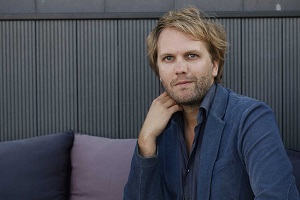De Britse dichteres en schrijfster Sophie Hannah werd geboren in Manchester op 28 juni 1971. Hannah is de dochter van een hoogleraar politicologie en een jeugdboekenschrijfster. Haar eerste gepubliceerde werk was het kinderboek “Carrot the Goldfish” (1992). Tussen 1993 en 2007 publiceerde ze tien poëziebundels, waarvan het merendeel verscheen bij uitgever Carcanet Press. Ook vertaalde ze twee boeken van Tove Jansson uit de Mumintrollet-serie in het Engels. Van 1997 tot 2001 was ze verbonden aan twee universiteiten, respectievelijk Cambridge (Trinity College) en Oxford (Wolfson College). In 2006 publiceerde ze voor het eerst een boek voor volwassenen, “Little Face”, een psychologische misdaadroman. Er werden 100.000 exemplaren van verkocht, en in de jaren daarna verscheen nog een tiental misdaadromans, waaronder “The Monogram Murders” (2014), een detectiveroman met Hercule Poirot, de Belgische detective geschapen door Agatha Christie, 39 jaar na “Curtain: Poirot’s Last Case”.
The Storming
There are differences, one assumes,
between us and the people we know who storm out of rooms,
sometimes crying, but not every time;
sometimes muttering, sometimes an angry marching mime
is their exit mode. Where do they go,
all those people who storm out of rooms? Will we ever know?
Are there sandwiches there, and a flask
of hot tea? We won’t find out if we never ask.
Once they’ve fled the provoking scene,
do they all get together somewhere? Do they reconvene
in a basement, an attic, a flat?
Do they also reserve the right to storm out of that,
and if so, do they take turns to storm
or link arms and desert en masse in a furious swarm,
leaving nobody in their wake?
Would there be any point in the storming, for nobody’s sake?
There are differences, one fears,
between us and the people who storm out of rooms in tears,
as if, having ruined it all,
in the snug, they imagine they’ll be better off in the hall,
and that anyone left in a chair
automatically gets to be wrong and to blame and unfair,
unaware of how bad stormers feel,
and quite lacking in feelings themselves. That is part of the deal.
Notice how I don’t leap to my feet,
how I nestle in cushions and curl myself into my seat.
Leave at once for the moral high ground.
I’ll stay here by the fire, mocking storms and just lounging around.

Sophie Hannah (Manchester, 28 juni 1971)

